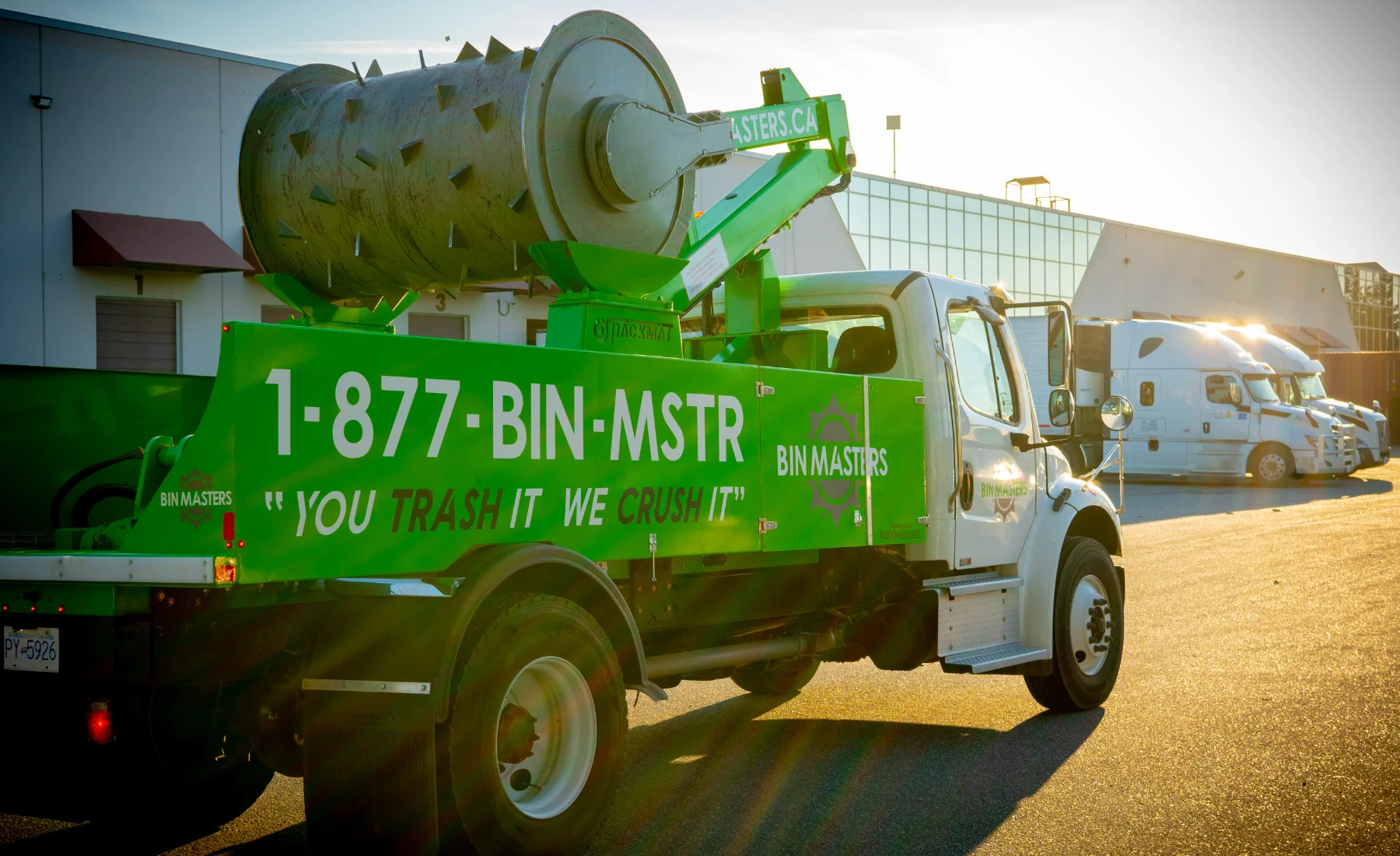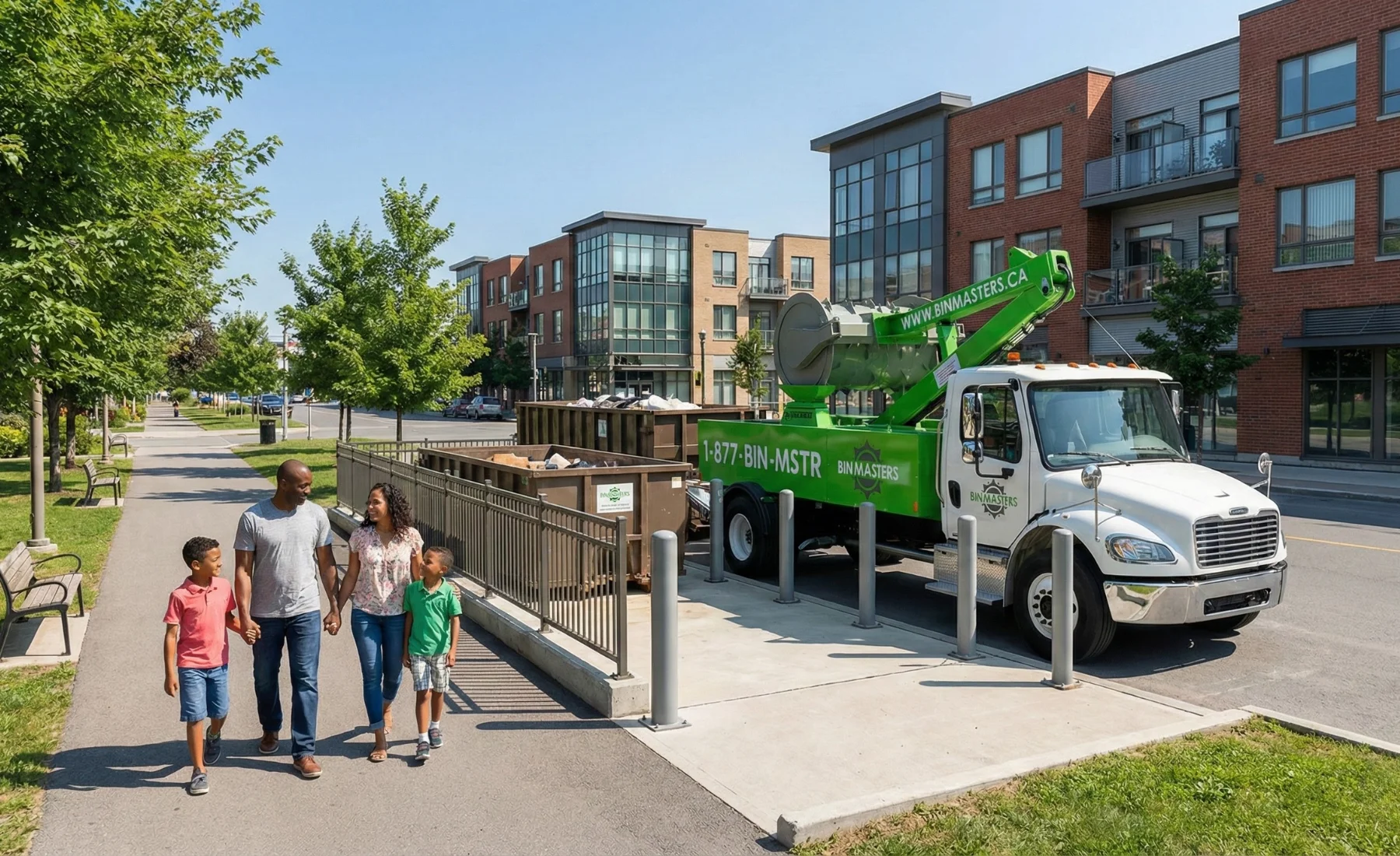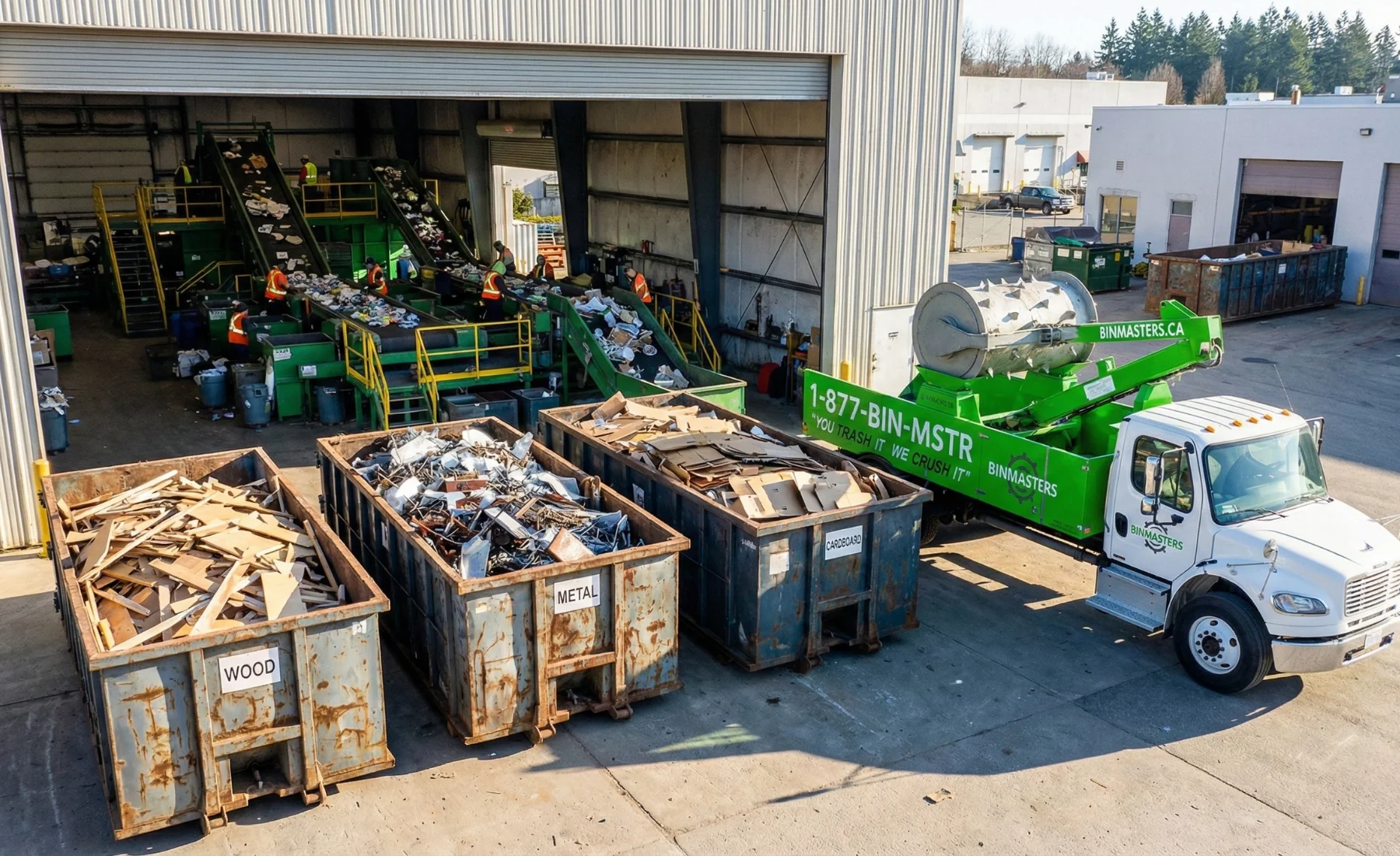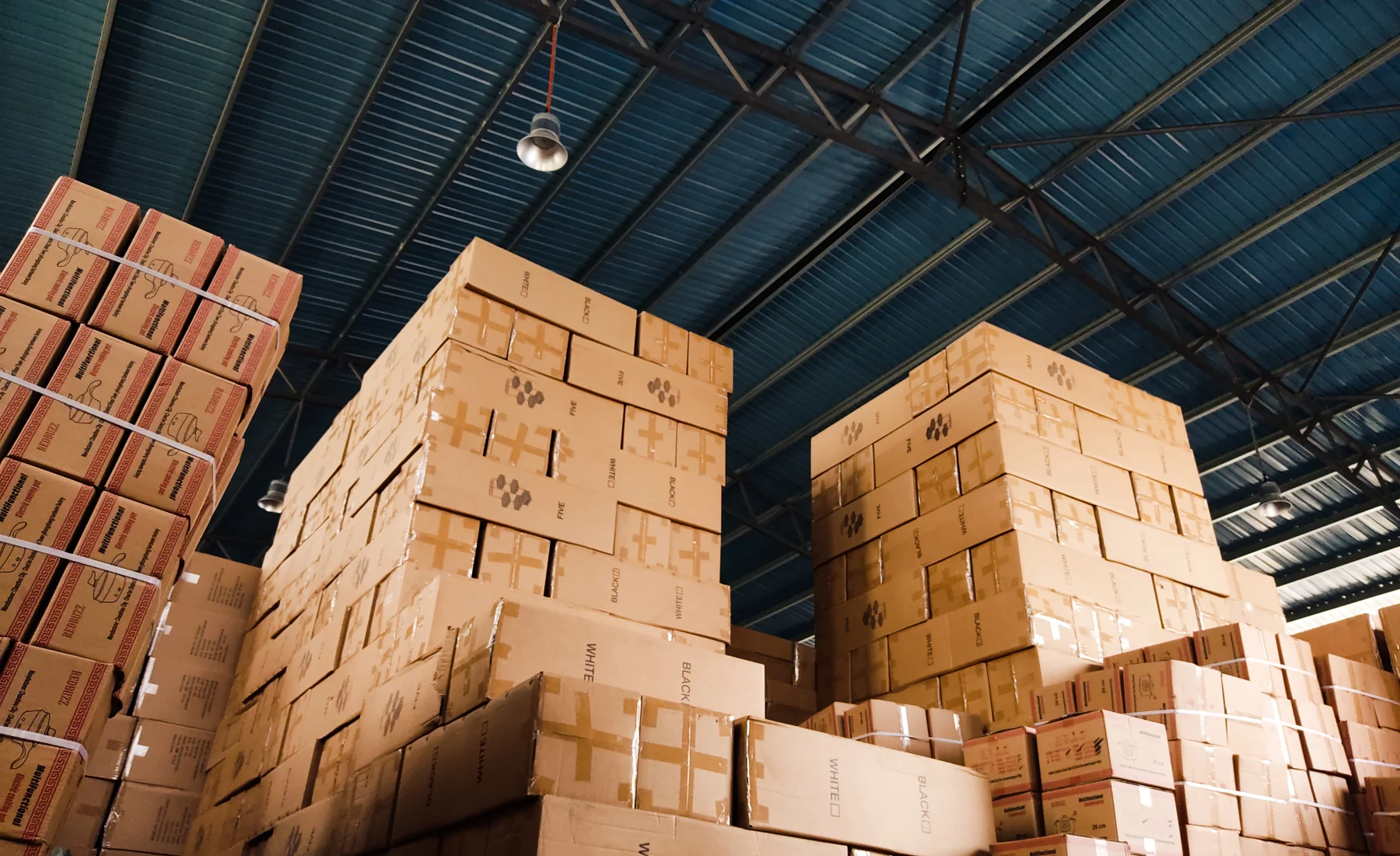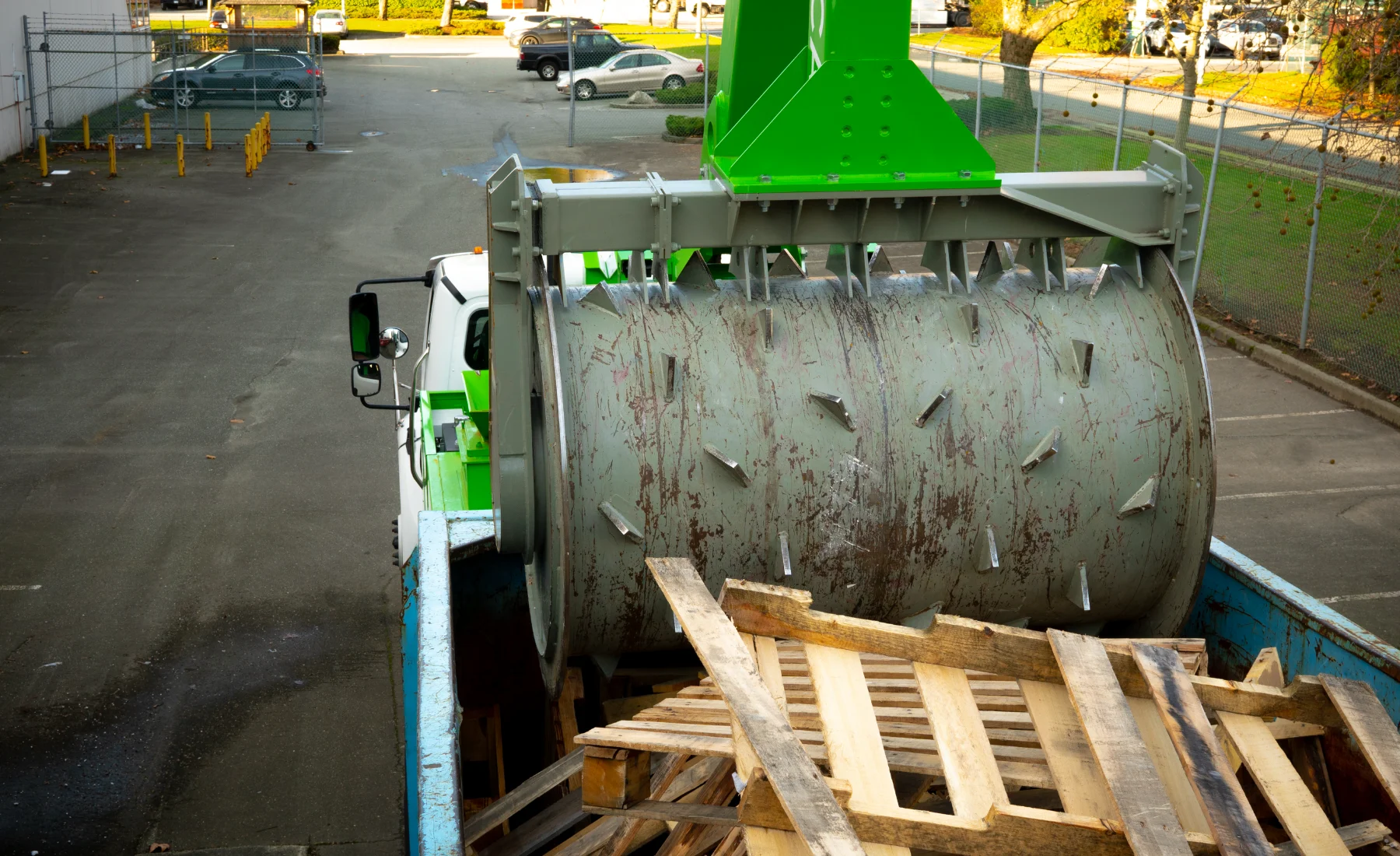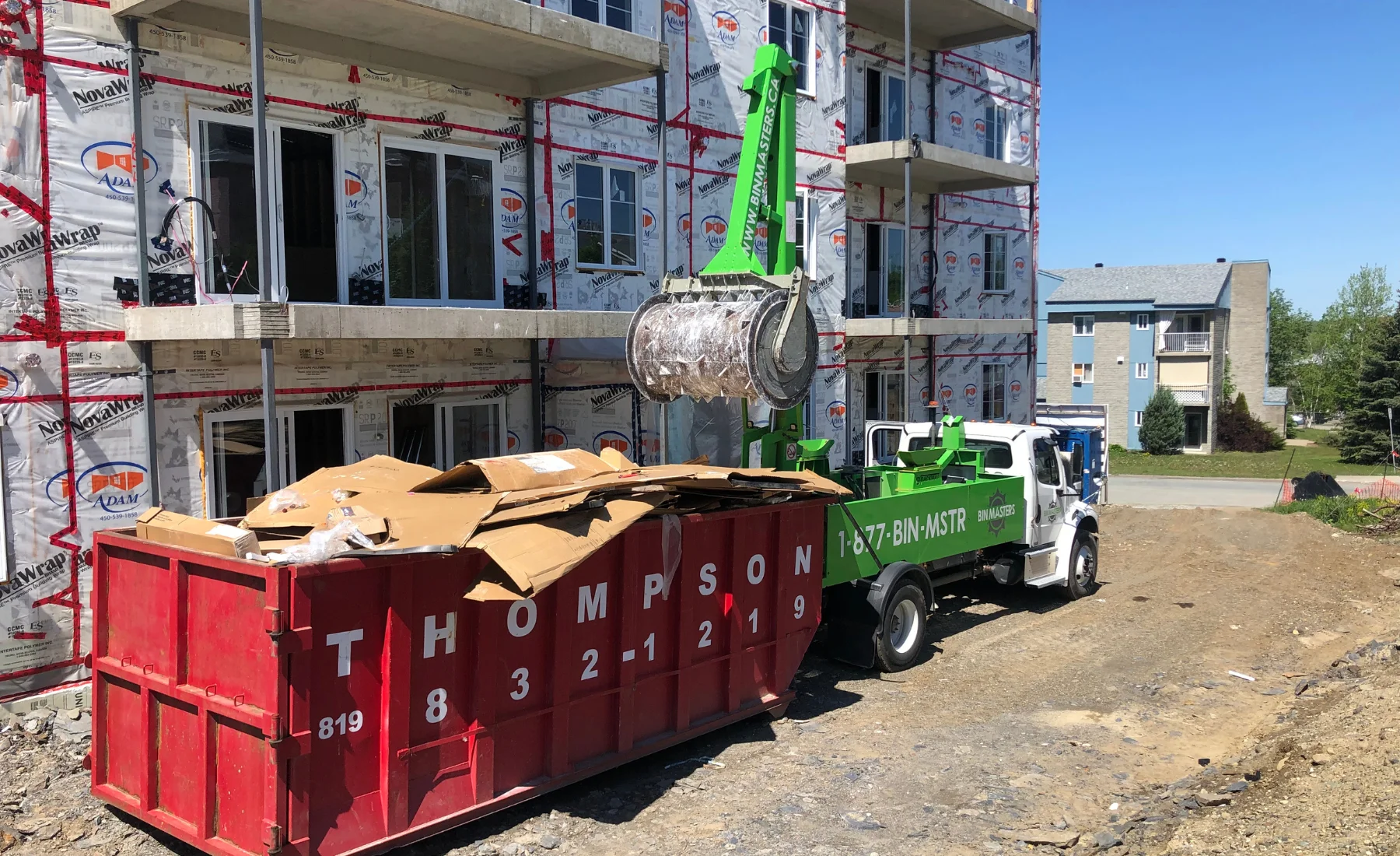For Quebec businesses managing substantial waste volumes, a critical financial decision looms: should you purchase compaction equipment outright or opt for mobile compaction services? This choice impacts not just immediate budgets but long-term financial performance, operational flexibility, and sustainability outcomes. While the traditional business instinct often favors asset ownership, a comprehensive financial analysis reveals that mobile compaction services frequently deliver superior returns and reduced risk for most Quebec organizations. This in-depth guide examines the complete financial case for both approaches, providing decision frameworks tailored to Quebec's unique business environment.
Understanding the True Financial Comparison
The capital versus service decision extends far beyond simple purchase price versus service fee calculations. According to research from HEC Montréal, businesses that base this decision solely on direct cost comparisons typically overlook 40-60% of the relevant financial factors, leading to suboptimal outcomes.
The Full Cost Accounting Framework
The U.S. Environmental Protection Agency's Full Cost Accounting methodology, adapted for waste management decisions, identifies five cost categories that must be considered for accurate comparison:
- Direct Costs: Immediate expenditures including purchase price or service fees
- Hidden Costs: Indirect expenses like maintenance, training, and administration
- Contingent Costs: Potential future liabilities and risks
- Relationship Costs: Impact on stakeholder relationships and reputation
- Societal Costs: Broader environmental and community impacts
Natural Resources Canada emphasizes that Quebec businesses should pay particular attention to provincial factors affecting these categories, including energy costs, labor regulations, and environmental compliance requirements unique to the region.
Capital Expenditure: The Complete Financial Picture
Purchasing compaction equipment represents a significant capital investment with complex financial implications. Let's examine the comprehensive costs associated with equipment ownership.
Initial Capital Investment
The upfront purchase represents only the beginning of the financial commitment:
- Equipment Purchase: $30,000-150,000+ depending on capacity and features
- Installation: $5,000-15,000 for site preparation, electrical work, and setup
- Permits and Compliance: $2,000-8,000 for necessary approvals and inspections
- Initial Training: $1,500-5,000 for operator certification and safety training
According to the Quebec Ministry of Economy and Innovation, businesses should also factor in the opportunity cost of capital—what those funds could generate if invested elsewhere in the business. With average returns on business investment in Quebec ranging from 8-12%, this represents a significant hidden cost.
Ongoing Operational Expenses
Equipment ownership creates a stream of recurring costs that extend throughout the asset's lifecycle:
- Maintenance: Annual costs typically range from 8-15% of purchase price
- Repairs: Increasing with equipment age, averaging 5-20% of purchase price annually after warranty period
- Energy Consumption: $1,200-3,600 annually depending on usage patterns and equipment efficiency
- Insurance: $800-2,500 annually for equipment coverage
- Operator Labor: $25,000-45,000 annually for dedicated or partial staff allocation
- Training Updates: $800-2,000 annually for ongoing certification and safety training
- Administrative Overhead: $5,000-12,000 annually for management, compliance, and reporting
Research from École Polytechnique de Montréal indicates that these ongoing costs are frequently underestimated by 30-40% in initial financial projections, creating budget surprises for equipment owners.
Hidden Financial Factors
Beyond direct expenses, equipment ownership introduces several less obvious financial impacts:
Depreciation and Tax Implications
While capital equipment offers depreciation tax benefits, these must be weighed against other considerations:
- Compaction equipment typically depreciates over 7-10 years for tax purposes
- Accelerated depreciation options may be available under certain Quebec tax provisions
- Service fees are generally 100% deductible as business expenses in the year incurred
The Conseil Patronal de l'Environnement du Québec notes that while depreciation offers tax advantages, these benefits rarely offset the total cost of ownership when all factors are considered.
Space Utilization Costs
Permanent compaction equipment requires dedicated space that could otherwise serve productive purposes:
- Typical stationary compactors require 20-40 square meters of space
- In urban Quebec locations, commercial real estate averages $150-400 per square meter annually
- This represents $3,000-16,000 in annual opportunity cost rarely factored into equipment ROI calculations
Technological Obsolescence
Purchased equipment faces inevitable technological obsolescence:
- Compaction technology typically sees significant efficiency improvements every 5-7 years
- Older equipment gradually becomes less energy-efficient and more maintenance-intensive
- Regulatory changes may require equipment upgrades or modifications
MIT Sloan School of Management research indicates that technological obsolescence typically reduces equipment value by 60-80% over a 10-year period, beyond standard depreciation assumptions.
End-of-Life Considerations
Equipment ownership creates financial obligations at the end of the asset's useful life:
- Decommissioning: $2,000-8,000 for removal and site restoration
- Disposal: $1,000-3,000 for environmentally compliant disposal or recycling
- Replacement Cycle: The entire capital investment process begins again
These end-of-life costs are rarely factored into initial purchase decisions but represent real financial obligations that impact total ownership costs.
Mobile Compaction Services: The Financial Advantage
Mobile compaction services offer a fundamentally different financial model with distinct advantages for many Quebec businesses. Let's examine the comprehensive financial picture of the service approach.
Predictable Operational Expenditure
Rather than large capital outlays, mobile compaction services operate on a predictable fee structure:
- Service Fees: Typically $500-1,500 monthly depending on frequency and volume
- No Hidden Costs: Maintenance, repairs, labor, and compliance included in service fee
- Scalable Pricing: Services can be adjusted based on seasonal or business cycle needs
According to Environmental Business International, this predictable OpEx model improves cash flow management and financial planning accuracy for 85% of businesses compared to the variable costs associated with equipment ownership.
Eliminated Capital Requirements
The service model eliminates the need for significant capital allocation:
- No upfront equipment investment
- No installation or site preparation costs
- Capital remains available for core business investments
- Improved financial ratios (ROA, ROCE) through reduced asset base
Harvard Business School research indicates that businesses redirecting capital from non-core assets (like waste equipment) to core operations typically generate 1.8-2.4x higher returns on that capital.
Operational and Financial Flexibility
Mobile compaction services offer flexibility that creates financial advantages:
Scalability Benefits
- Service frequency can be adjusted seasonally or as business needs change
- No excess capacity costs during low-volume periods
- No capacity constraints during high-volume periods
- Equipment type can be matched to specific waste streams as they evolve
The International Solid Waste Association estimates that this scalability delivers 15-25% cost efficiency compared to fixed-capacity owned equipment that must be sized for peak volumes.
Risk Mitigation
- No exposure to equipment breakdown costs or downtime
- No technological obsolescence risk
- Reduced compliance risk through provider expertise
- No end-of-life disposal obligations or costs
Deloitte's analysis indicates that risk mitigation benefits alone represent 12-18% of the total financial advantage of service models over ownership.
Space Optimization Value
Mobile compaction services require minimal dedicated space:
- No permanent equipment footprint
- Temporary access requirements only during service visits
- Freed space available for revenue-generating or operational activities
For urban Quebec businesses where space is at a premium, this advantage can represent $5,000-20,000 in annual value through optimized space utilization.
Administrative Efficiency
The service model dramatically reduces administrative burden:
- No equipment maintenance scheduling or management
- No repair vendor relationships to manage
- Simplified accounting with predictable monthly expenses
- Reduced compliance documentation and reporting requirements
HEC Montréal research indicates that businesses typically save 50-100 administrative hours annually through the service model compared to equipment ownership.
Comparative Financial Analysis: Quebec Business Scenarios
To illustrate the financial comparison, let's examine three typical Quebec business scenarios using a 10-year total cost of ownership (TCO) analysis framework.
Scenario 1: Medium-Sized Retail Operation
Business Profile:
- Suburban Quebec location with moderate space constraints
- Consistent waste volume with holiday season peaks
- Primarily cardboard and packaging waste
Equipment Ownership TCO (10-Year):
- Initial Investment: $45,000
- Installation: $8,000
- Maintenance/Repairs: $52,000
- Energy: $18,000
- Labor: $120,000
- Insurance/Administration: $35,000
- End-of-Life: $5,000
- Space Opportunity Cost: $40,000
- Total 10-Year TCO: $323,000
Mobile Compaction Service (10-Year):
- Monthly Service Fee: $800
- Annual Cost: $9,600
- 10-Year Total: $96,000
- Additional Seasonal Services: $24,000
- Total 10-Year Cost: $120,000
Financial Advantage: Mobile compaction service delivers 63% lower total cost ($203,000 savings) over 10 years.
Scenario 2: Construction Company
Business Profile:
- Multiple changing job sites across Quebec
- Variable waste volumes based on project phases
- Mixed construction debris requiring robust compaction
Equipment Ownership TCO (10-Year):
- Initial Investment: $85,000
- Multiple Reinstallations: $60,000
- Maintenance/Repairs: $95,000
- Energy: $25,000
- Labor: $180,000
- Insurance/Administration: $55,000
- Transportation Between Sites: $40,000
- End-of-Life: $7,000
- Total 10-Year TCO: $547,000
Mobile Compaction Service (10-Year):
- Average Monthly Service Fee: $1,200
- Annual Cost: $14,400
- 10-Year Total: $144,000
- Site-Specific Setup Fees: $30,000
- Total 10-Year Cost: $174,000
Financial Advantage: Mobile compaction service delivers 68% lower total cost ($373,000 savings) over 10 years.
Scenario 3: Manufacturing Facility
Business Profile:
- Fixed location in industrial Quebec area
- High, consistent waste volume
- Specialized waste streams requiring different compaction approaches
Equipment Ownership TCO (10-Year):
- Initial Investment (Multiple Units): $120,000
- Installation: $15,000
- Maintenance/Repairs: $110,000
- Energy: $30,000
- Labor: $220,000
- Insurance/Administration: $65,000
- Mid-Life Upgrade: $40,000
- End-of-Life: $10,000
- Space Opportunity Cost: $30,000
- Total 10-Year TCO: $640,000
Mobile Compaction Service (10-Year):
- Monthly Service Fee (Multiple Streams): $1,800
- Annual Cost: $21,600
- 10-Year Total: $216,000
- Specialized Service Premiums: $40,000
- Total 10-Year Cost: $256,000
Financial Advantage: Mobile compaction service delivers 60% lower total cost ($384,000 savings) over 10 years.
These scenarios, based on actual Quebec business data compiled by the Conseil Patronal de l'Environnement du Québec, demonstrate the consistent financial advantage of the service model across different business types and waste profiles.
Decision Framework: When Ownership Might Make Sense
While mobile compaction services offer clear financial advantages for most Quebec businesses, specific circumstances may favor equipment ownership:
Extremely High Volume, Single-Location Operations
Businesses with very high, consistent waste volumes at a single location may reach a threshold where ownership economics improve. According to SWANA analysis, this typically requires:
- Waste volume sufficient for daily compaction
- Dedicated waste management staff already on payroll
- Specialized waste streams requiring customized equipment
- Stable, long-term operations with predictable waste patterns
Even in these cases, a comprehensive TCO analysis is essential to verify the financial advantage.
Remote Locations with Limited Service Access
Operations in remote Quebec regions where service providers have limited coverage may need to consider ownership by necessity rather than choice. However, the additional costs of maintaining equipment in remote locations often offset any potential savings.
Specialized Industry Requirements
Certain industries with highly specialized waste streams or regulatory requirements may benefit from purpose-built equipment. Examples include:
- Food processing facilities with unique organic waste handling needs
- Pharmaceutical manufacturers with controlled substance disposal requirements
- Chemical producers with hazardous waste processing needs
Even in these cases, specialized mobile compaction services may offer comparable benefits with lower total costs.
Quebec-Specific Financial Considerations
Several factors unique to Quebec's business environment influence the capital versus service decision:
Provincial Tax Implications
Quebec's tax structure includes several provisions relevant to this decision:
- Capital Cost Allowance (CCA) rates for waste management equipment
- Quebec Investment Tax Credit for manufacturing and processing equipment
- Provincial sales tax considerations for equipment versus services
The Quebec Ministry of Economy and Innovation recommends consulting with a tax professional to model these impacts for your specific business situation.
Environmental Compliance Factors
Quebec's environmental regulations are among Canada's most stringent, creating additional considerations:
- Equipment owners bear direct compliance responsibility
- Service providers typically manage compliance documentation and reporting
- Regulatory changes may require equipment modifications or upgrades
RECYC-QUÉBEC data indicates that businesses using service models experience 40-60% fewer compliance issues than those managing their own equipment.
Energy Cost Considerations
Quebec's unique energy profile affects operational costs:
- Lower electricity costs compared to other provinces (advantage for electric equipment)
- Higher heating costs during winter months (consideration for outdoor equipment)
- Provincial carbon pricing mechanisms affecting fossil fuel-powered equipment
These factors should be incorporated into any Quebec-specific TCO analysis.
Implementation Strategy: Transitioning to Mobile Compaction Services
For Quebec businesses currently owning compaction equipment or considering their options, a strategic transition to mobile compaction services can maximize financial benefits:
Step 1: Comprehensive Current State Assessment
Begin with a detailed analysis of your current waste management costs and operations:
- Document all direct and indirect costs associated with current approach
- Analyze waste volume patterns and seasonal variations
- Identify pain points and inefficiencies in current system
- Establish clear baseline metrics for comparison
Step 2: Service Model Evaluation
Work with mobile compaction service providers to develop a customized solution:
- Request detailed service proposals from multiple providers
- Ensure proposals address your specific waste volume and composition needs
- Verify service coverage and reliability for your location(s)
- Negotiate flexible terms that accommodate your business cycles
Step 3: Financial Analysis and Decision
Conduct a comprehensive financial comparison:
- Apply the full cost accounting framework to both options
- Project costs over a 5-10 year horizon
- Include sensitivity analysis for volume changes and price increases
- Calculate ROI, payback period, and total cost of ownership
Step 4: Implementation Planning
Develop a detailed transition plan:
- For existing equipment owners: Determine optimal equipment disposition strategy
- Establish implementation timeline with minimal operational disruption
- Develop staff training and communication plan
- Create performance metrics to track service effectiveness
Step 5: Continuous Optimization
After implementation, continuously refine the approach:
- Monitor actual costs against projections
- Track service performance and reliability
- Adjust service frequency and equipment type as needs evolve
- Regularly review market for new service options and technologies
Conclusion: The Strategic Financial Decision
The decision between purchasing compaction equipment and utilizing mobile compaction services represents more than a simple cost comparison—it's a strategic choice with far-reaching financial implications. For most Quebec businesses, the mobile compaction service model delivers compelling advantages:
- 60-70% lower total cost over a 10-year horizon
- Eliminated capital requirements and improved financial ratios
- Reduced risk exposure and administrative burden
- Enhanced operational flexibility and scalability
- Improved space utilization and focus on core business activities
While specific circumstances may occasionally favor ownership, a comprehensive financial analysis using the frameworks provided in this guide will typically reveal the clear advantage of the service approach for Quebec businesses across most industries and operational profiles.
How BinMasters Quebec Can Help
At BinMasters Quebec, we specialize in providing flexible mobile compaction services tailored to the unique needs of Quebec businesses. Our team of financial and waste management experts can help you:
- Conduct a comprehensive analysis of your current waste management costs
- Develop a customized service plan optimized for your specific requirements
- Create a detailed financial comparison between ownership and service options
- Implement a seamless transition to mobile compaction services
- Continuously optimize your approach as your business evolves
Contact BinMasters Quebec today for a free consultation and discover how our mobile compaction services can transform your waste management approach while delivering significant financial advantages.
Ready to optimize your waste management finances? Contact our team today to schedule your free consultation and cost analysis.
.svg)
